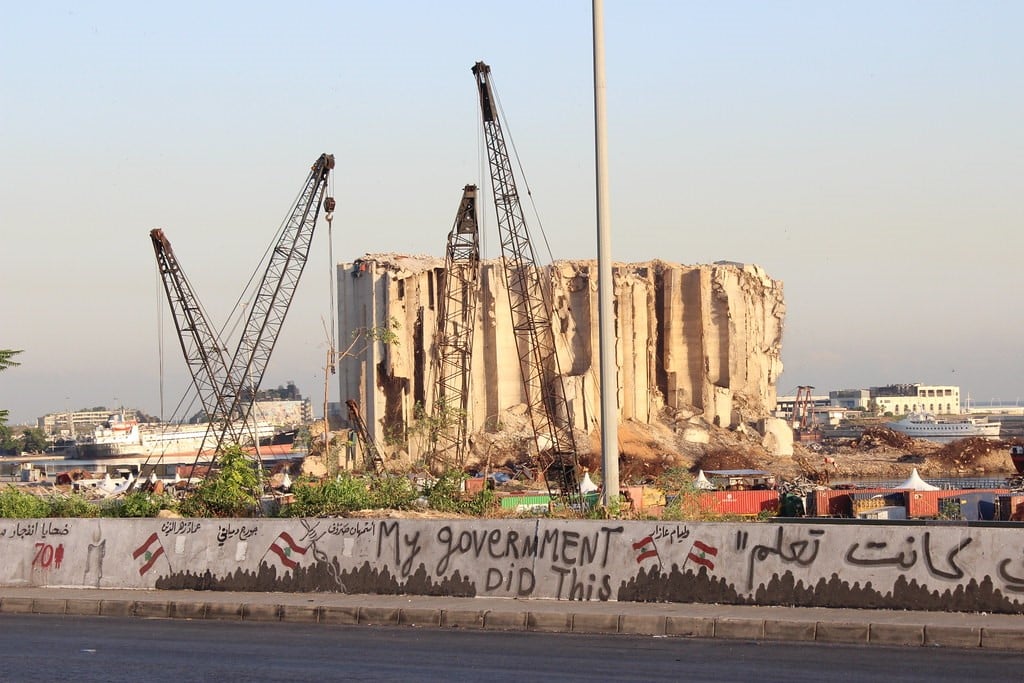On the 14th of October a protest against the investigation of the Beirut blast of August 2020 resulted in armed clashes on the streets of the Lebanese capital. The protest was staged by Lebanese Shi’ite groups Hezbollah and Amal. During the protest violent clashes broke out and several gunmen with automatic rifles and grenades ended up battling each other in the streets of Beirut for several hours. The violence left 7 people dead and more than 30 injured. One of the victims of the clashes was a women who was a woman who was hit by a stray bullet while inside of her home. Hezbollah accused Christian group Lebanese Forces (LF) of starting the conflict. According to Samir Geagea, leader of the LF, the conflict was started by Hezbollah and Amal supporters. On the 15th of October funerals were held across the country and schools, banks and government offices shut down for a day of mourning. The violence was the worst that the country has seen since the end of its civil war in 1990.
Challenging the impunity of Lebanon’s political elite
The protest against the investigation comes after Lebanon’s political elite, which has been ruling with impunity for years, has been challenged by lead investigator Tarek Bitar. When it was announced that a probe into the Beirut explosion would be conducted domestically, there was little expectation that senior officials would be charged. However, investigator Tarek Bitar has sought to question several senior politicians and security officials as suspects of criminal negligence resulting in the explosion. Amongst the politicians called in for questioning are Hezbollah allies such as Christian politician Youssef Fenianous. Furthermore, on the 12th of October Bitar issues an arrest warned against ex-finance minister Ali Hassan Khalil, the right-hand man of Hezbollah ally Parliament Speaker Nabih Berri. Hezbollah leader Hassan Nasrallah has accused Tarek Bitar of political targeting and called for him to not only be removed from the case, but to also be removed as a judge in general.
As the pressure on Lebanon’s political elite has been rising, pushback against the investigation also increases. Bitar’s predecessor, judge Fadi Sawan, was removed after he charged three former ministers and ex-Prime Minister Hassan Diab with criminal negligence. Bitar has been continuing to pursue these same individuals. The charged officials have been trying to derail the investigation by declining to show up at interrogations and filing legal complaints to have the judge removed. While these complaints have been dismissed, it has resulted in the investigation being temporarily suspended several times.
Underlying sectarian tensions
The violence that erupted on the streets of Beirut exposes the underlying tensions of Lebanon’s sectarian divides. The rising sectarian tensions are creating worries amongst the population as many people still remember the days of the civil war. There are several paramilitary organizations that are part of the Lebanese political system, amongst which are Hezbollah and the Lebanese Forces. The tensions between the two groups, both representing different sects within Lebanese society, are rising after they are accusing each other of starting the violence on October 14th. The leader of the Lebanese Forces, Samir Geagea, has been summoned to testify before the military intelligence service about the clashes. According to Geagea, his summoning shows a bias against the Lebanese Forces. In a television appearance Geagea stated that he would only give testimony if Hassan Nasrallah would do the same.
The conflict also puts pressure on political alliances in the country. One of these alliances is between Lebanon’s Christian President Michel Aoun’s Free Patriotic Movement party (FPM) and Hezbollah. While Hezbollah voices fierce criticism at the investigation of the blast, the probe has received broad backing from the Christian population. President Michel Aoun has also expressed his support for the investigation. The reason behind the support for the investigation is that the areas that saw the most damage of the explosion are predominantly Christian.
Sources: Al Jazeera Al Jazeera BBC Reuters Reuters
Photo source: Flickr

